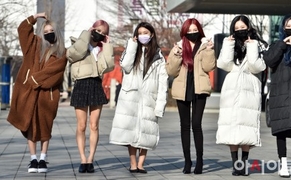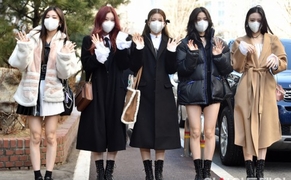 |
By AsiaToday reporters Kim Yoo-jin, Kim Eun-young, PD Kim Yoo-min - Since South Korea made the announcement last July that it would deploy the Terminal High Altitude Area Defense (THAAD) system, China has been embroiled in trade retaliation controversy against South Korea. Prof. Emanuel Pastreich, the senior advisor of AsiaToday, interviewed Kim Hae-sun, CEO of Suntransglobe and Korea-China relations specialist, on strained ties between S. Korea and China on Jan. 18. As a director of the Korea-China Friendship Association, Kim has been consulting companies who want to do business in China for many years.
[Full Interview Transcript]
Pastreich:
My name is Emanuel Pastreich, director of Asia Institute here in Seoul. So, tell us, recently Park Geun-hye administration decided to deploy the THAAD and it caused a lot of problems for Korean-Chinese businesses. Tell us a little bit about what happened and what the influence has been.
My name is Emanuel Pastreich, director of Asia Institute here in Seoul. So, tell us, recently Park Geun-hye administration decided to deploy the THAAD and it caused a lot of problems for Korean-Chinese businesses. Tell us a little bit about what happened and what the influence has been.
Kim:
During 2016, the Chinese government has been contacting Korean government about "What is your plan about the THAAD?". At the time, I don't think Korean government has explicitly informed about the plan of this deployment. But suddenly in July 2016, when there was a conflict about South China Sea, there was a decision made by an international tribunal in The Hague. Just after the decision was made at the Hague, Korean government has announced about the deployment of the THAAD, which resulted in more conflict between Korea and China. Consequently, there was anti-Korean business environment by Chinese government. Especially in the cultural and entertainment area, and other businesses such as electric car batteries businesses as well, including LG and Samsung.
During 2016, the Chinese government has been contacting Korean government about "What is your plan about the THAAD?". At the time, I don't think Korean government has explicitly informed about the plan of this deployment. But suddenly in July 2016, when there was a conflict about South China Sea, there was a decision made by an international tribunal in The Hague. Just after the decision was made at the Hague, Korean government has announced about the deployment of the THAAD, which resulted in more conflict between Korea and China. Consequently, there was anti-Korean business environment by Chinese government. Especially in the cultural and entertainment area, and other businesses such as electric car batteries businesses as well, including LG and Samsung.
Pastreich:
Regarding the resolution of this disagreement about the THAAD, this is something that can only be done by the government. But for the moment, what are your suggestions in terms of what Korean companies can do to respond for the short term?
Regarding the resolution of this disagreement about the THAAD, this is something that can only be done by the government. But for the moment, what are your suggestions in terms of what Korean companies can do to respond for the short term?
Kim:
Yes, for the short term, I think this conflict between Korea and China would continuously exist during certain months for about two or three more months, especially in regards to the current Korean political situation. During that period, I don't think we can do much about the current situation. But we still need to maintain economic and business relationship with our counterpart in China. So when the situation is over, then we can continuously resume the business relationship between Korea and China.
Yes, for the short term, I think this conflict between Korea and China would continuously exist during certain months for about two or three more months, especially in regards to the current Korean political situation. During that period, I don't think we can do much about the current situation. But we still need to maintain economic and business relationship with our counterpart in China. So when the situation is over, then we can continuously resume the business relationship between Korea and China.
Pastreich:
I think, for many Chinese businessmen, if they see Koreans are dedicated or continue to try even under difficult situations, that will impress them about the seriousness of Korean, whereas if they just leave then I think it probably may have very negative impact.
I think, for many Chinese businessmen, if they see Koreans are dedicated or continue to try even under difficult situations, that will impress them about the seriousness of Korean, whereas if they just leave then I think it probably may have very negative impact.
Kim:
That's right. Koreans in general lack of long term continuous relationship, because we have this "Pali-pali" ("Quickly") spirit. But if you look at the Chinese style, they always continuously maintain the long term relationship. So we should still be very patient to maintain the relationship to resume the business between Korea and China.
That's right. Koreans in general lack of long term continuous relationship, because we have this "Pali-pali" ("Quickly") spirit. But if you look at the Chinese style, they always continuously maintain the long term relationship. So we should still be very patient to maintain the relationship to resume the business between Korea and China.
Pastreich:
So in the long term, do you have any suggestions in terms of what strategies Korean companies should adopt in their relationships with China?
So in the long term, do you have any suggestions in terms of what strategies Korean companies should adopt in their relationships with China?
Kim:
If we look at the certain particular field, I would like to recommend that many Korean companies who are talented to develop business areas such as children's goods or children's food, and medical business sector, like service sector. It is very important to tackle those areas because there is a huge growing number of elderly population in China, and they lack medical doctors and facilities. Especially they lack know-how of medical operation service. So those are the areas Koreans are talented and can move ahead to enter the Chinese market.
If we look at the certain particular field, I would like to recommend that many Korean companies who are talented to develop business areas such as children's goods or children's food, and medical business sector, like service sector. It is very important to tackle those areas because there is a huge growing number of elderly population in China, and they lack medical doctors and facilities. Especially they lack know-how of medical operation service. So those are the areas Koreans are talented and can move ahead to enter the Chinese market.
Pastreich:
It is very important to go beyond just smart phones, as there are whole variety of other possible markets out there in China today.
It is very important to go beyond just smart phones, as there are whole variety of other possible markets out there in China today.
Kim:
Yes. I also want to make one point on this occasion. Expert like yourself, we have many foreign experts in Korea who are also Asian experts. I think it is very important to collaborate together to build long term relationship between Korea and China, as well as ease the gap or political conflict between U.S., China, and Korea all together. So I hope that those experts, like yourself, can participate and collaborate with Korean business people or political leaders to help us to ease the tension which will eventually lead to blossoms, business activities between Korean and China.
Yes. I also want to make one point on this occasion. Expert like yourself, we have many foreign experts in Korea who are also Asian experts. I think it is very important to collaborate together to build long term relationship between Korea and China, as well as ease the gap or political conflict between U.S., China, and Korea all together. So I hope that those experts, like yourself, can participate and collaborate with Korean business people or political leaders to help us to ease the tension which will eventually lead to blossoms, business activities between Korean and China.
Pastreich:
One of the big challenges right now is the new administration of Donald Trump in Washington D.C., and we have this very contradictory images. On the one hand, Jack Ma going forward with this offering million jobs and trying to have good relationship, not just Jack Ma, other people have tried to do that. On the other hand, you have very confrontational descriptions with Rex Tillerson, the nominee for secretary of state who are very hardline on the South China Sea. So this unpredictability in terms of what the United States' role is and what impact do you think this may have on China-Korea relations?
One of the big challenges right now is the new administration of Donald Trump in Washington D.C., and we have this very contradictory images. On the one hand, Jack Ma going forward with this offering million jobs and trying to have good relationship, not just Jack Ma, other people have tried to do that. On the other hand, you have very confrontational descriptions with Rex Tillerson, the nominee for secretary of state who are very hardline on the South China Sea. So this unpredictability in terms of what the United States' role is and what impact do you think this may have on China-Korea relations?
Kim:
Yes, I think Koreans in general, including media and political leaders, are at the moment lack information about Donald Trump. And not many people have predicted that he would be elected as the next president. So we are in a big trouble at the moment. It is very important that we find out more about what is behind his cabinet and who will be the major mainstream in his business. But on the other hand, Donald Trump may lack political leadership, but he is a good businessman. So it is very important how to approach him to build business relationship between Korea and the U.S., increase and stimulate business activities. It is very difficult question but maybe we have some way to break through this situation.
Yes, I think Koreans in general, including media and political leaders, are at the moment lack information about Donald Trump. And not many people have predicted that he would be elected as the next president. So we are in a big trouble at the moment. It is very important that we find out more about what is behind his cabinet and who will be the major mainstream in his business. But on the other hand, Donald Trump may lack political leadership, but he is a good businessman. So it is very important how to approach him to build business relationship between Korea and the U.S., increase and stimulate business activities. It is very difficult question but maybe we have some way to break through this situation.
Pastreich:
Thank you very much for your insights about Korea-China business relations. And I look forward to talking to you again. Thank you.
Thank you very much for your insights about Korea-China business relations. And I look forward to talking to you again. Thank you.
#Emanuel Pastreich #Kim Hae-sun #THAAD #retaliation
Copyright by Asiatoday
Most Read
-
1
-
2
-
3
-
4
-
5
-
6
-
7





















